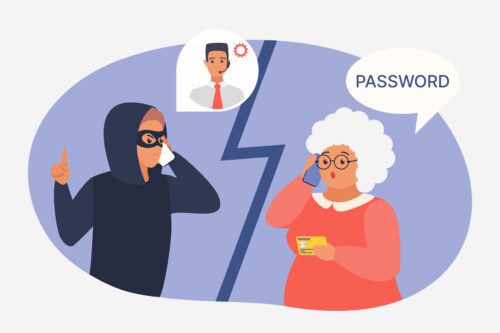The cost of living crisis is still affecting people across the board, as everyday prices continue to increase. But, since older ones often live off a fixed income, this crisis has been especially difficult for them. Age UK reported that one in ten older people in the UK plan on reducing their social care as a result of the increased cost of living.
There are various ways to save money as an elderly person without compromising on healthcare. From government benefits to simple lifestyle changes, these are our top tips for saving money in 2024.
1.Make a plan or budget
To start saving money, you first need to understand where your money goes. There are many ways to create -a budget. The most important thing is knowing how much money you have coming in and where your money is going. Only then can you effectively cut back on expenses.

2. Create a weekly meal plan
Aside from mortgage or rent, energy bills are often the biggest expense you’ll face each month.
By planning out your weekly meals ahead of time, you can ensure that you save money on unnecessary ingredients when shopping for food. Including leftovers and ingredients you already have in your cupboards can also help save money while reducing waste.
Having a plan can also prevent you from shopping in convenience stores or corner shops, which often charge more than supermarkets.
 Another way you can cut back on your food bill is by using food waste apps.
Another way you can cut back on your food bill is by using food waste apps.
There are a variety of apps aimed at preventing food waste by allowing its users access to surplus food from local restaurants or stores. For example, via the Too Good To Go app you can collect a bag of surplus grocery items from Morrisons for just £3.09.
This may include items such as fruit and veg, dairy products or baked goods that have reached their ‘best-before’ date.
This scheme is great for helping customers on a budget while reducing food waste. The app is free to download and easy to browse. If you’re not confident using your phone, ask a friend or family member to help you sign up. Encourage them to use the app themselves, so that they too can fight the food waste issue.
3. Save on energy bills
After food bills, electricity and gas bills are becoming increasingly difficult to afford. About 40% of energy bill payers are finding it difficult to afford their payments, according to a recent survey.
Fortunately, there are many ways you can save on energy bills, from replacing lightbulbs to spending less time in the shower. Saving money can be as simple as switching off your electronic devices, rather than leaving them in standby mode.
Energy suppliers in the UK face a competitive market. It’s worth getting quotes from more than one energy supplier to see if you can receive a better deal this year. Reliable companies, such as Uswitch, can help you compare prices easily and assist you in switching energy suppliers.
4.Get help staying warm this winter
Winter is particularly tough on older ones, for reasons such as increased risk of illness or a decline in mental health.
This year is no exception, with temperatures dropping below average for January. As we age, our immune system can struggle more to fight off the winter viruses. One of the best ways to avoid such viruses is to keep warm. But with the high cost of living, around 45% of adults in the UK report cutting back on fuel use within their homes to save money.
Fortunately, help is available. The following government schemes can help offset the cost of heating this winter.
Winter Fuel Payment
Each year, the government provides a tax-free payment called the Winter Fuel Payment to help individuals cover their heating costs during the colder seasons. The amount issued varies based on your age and if others in your household are eligible.
Warm Home Discount
The purpose of the Warm Home Discount is to provide financial aid to those in need, such as those on low incomes or receiving pensions, by offering a one-time payment to help cover the cost of energy during the winter.
If your energy supplier is part of the Warm Home Discount scheme, you should receive your one-off payment automatically.
Cold Weather Payment
When temperatures drop to extreme levels, individuals receiving certain benefits, like Pension Credit or Universal Credit, can receive additional financial support through the Cold Weather Payment

5. Shop for less
When you’re struggling with your finances, it’s common to feel guilty about spending money on ‘non-essential items’. But, with a few simple tips you can still enjoy shopping without feeling guilty!
You can save money when you shop online by utilising vouchers, sales and discount codes.
Running a quick Google search is the easiest way to discover discount codes. Just search for “voucher code” and the name of the retailer you’re purchasing from. If you’re not confident online, ask a relative or trusted friend to help you.

You can also save money by purchasing pre-owned items, either online or at charity shops and markets.
Related: Best Gifts for your Grandchildren within your Budget
6. Save on healthcare costs
Healthcare can be a significant expense for older individuals. You can significantly reduce this expense by taking care of your health. This could include eating a healthy diet, exercising regularly and refraining from smoking.
If you find it difficult to exercise, Age UK suggest starting with small activities like regularly standing, or walking around the house. By staying in good health, you can reduce the need for expensive medical tests and treatments.
You can also reduce the financial impact of healthcare by exploring prescription savings. Consider prescription assistance programs such as a prescription prepayment certificate (PPC) from the NHS.
At times, it may be cheaper to order your prescription through a mail-order pharmacy. You can use the GPhC’s register to ensure the online pharmacy is reputable and meets UK standards.
Another way to save on healthcare costs is to utilise preventative care. Scheduling regular check-ups and screenings can help detect health issues early, potentially reducing long-term medical expenses. The use of a personal alarm, such as a fall alarm, will help to prevent serious health complications as they allow for quick medical intervention.
7. Look for cheaper insurance
It can be difficult to secure affordable insurance on a budget. There is a lot of online research involved in finding a good deal, which might be challenging for older individuals. Using a price comparison site can save you a lot of time when looking for an insurance quote you’re happy with.
Some sites, such as Compare the Market, even offer reward schemes so you can save money on food or entertainment. If you don’t use email, you can request that Compare The Market contact you by phone or post.
8. Make the most of government benefits
If you’re over the age of 60, you are likely eligible for the following government benefits.
Free NHS dental treatment
If you or your partner receive benefits such as Guarantee credit part of Pension Credit you may be eligible for free dental treatment.
Discounted travel
If you travel by bus or train, you can save money by applying for a Senior Railcard and an older person’s bus pass.
Free eye tests
After age 60, you are eligible for a free eye exam through the NHS, which is typically performed every two years. You can also get help with the cost of glasses if you or your partner receive certain benefits.

Pension Credit
You can apply for Pension Credit, which provides financial help for your living costs if you are over the State Pension age and on a low income.
Get help paying your bills
If you live in private housing and claim Pension Guarantee Credit or Pension Savings Credit you may be able to get help paying for your bills. Under the Energy Company Obligation (ECO) scheme, energy providers contribute funds towards energy-saving measures. This could mean installing insulation or having a new boiler fitted, saving you money in the long run.
Contact your local council to see if they are participating in the ECO scheme.
Free TV licence
You can get a free TV licence if you’re over 75 and claim Pension Credit.
Government benefits may vary across the UK, contact your local council for localised information.
9. Beware of scams
Although scams can affect people of all ages, research has shown the elderly are among the biggest targets for scammers. The reasons for this are not clear. It may be because older individuals are generally more trusting and are less tech-savvy than young adults.
Here are a few things to keep in mind to protect yourself from scammers:
- If you are offered a deal that seems too good to be true, it probably is. For example, if someone contacts you with news of a free prize, it is likely a scam. The best thing you can do is end the call.
- Avoid making purchases over the phone, unless you know the company is reliable and has a good reputation. If in doubt, visit www.gov.uk/get-information-about-a-company to learn about a company before purchasing anything from them.
- Keep your personal information safe. Your personal information, such as bank statements, your driver’s licence or credit card number, is valuable. You should only share it with people you know and trust.
- Beware of doorstep scams. To protect yourself from doorstep scams, be cautious of anyone who comes to your door uninvited. Always verify their identity and intentions before providing any personal or financial information
Age UK has a comprehensive guide on Avoiding scams.
Saving money is a priority for many, especially older ones who may be living on a fixed income. By following the advice in this blog, you can make significant savings in many areas of your life.
Whether it’s reducing energy bills, claiming benefits or making small lifestyle changes, there are opportunities for everyone to cut costs and improve their financial situation. With a little effort and some smart choices, you can enjoy a more secure financial future.

If you’re feeling anxious in response to the increased cost of living, consider reaching out to one of the following charities:
- Mental Health & Money Advice offers advice and help for anybody facing mental health issues because of their financial situation.
- Mind helplines are staffed by qualified advisers who understand the connection between money and mental health.
- Age UK’s Advice Line can help you understand which benefits you’re eligible for and how you can apply for them.
We hope you found this article helpful. If so, please share it with your friends and family and visit our blog for more useful information.









